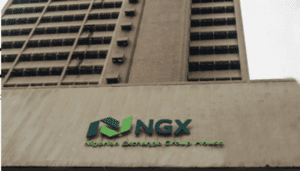Nigeria can drive positive changes through ESG — SEC DG
By Philemon Adedeji
The Securities and Exchange Commission has stated that Nigeria has the opportunity to drive positive changes through the focused promotion of ESG and sustainable finance in financial markets while protecting the environment, reducing inequality, promoting security and fostering national economic prosperity.
This was stated by the Director General of the SEC, Mr. Lamido Yuguda at the Workshop on Sustainable Finance organised by Securities & Exchange Commission, in collaboration with Financial Centre for Sustainability with the theme ‘ESG and Sustainable Finance: The Future of Investment’.
The SEC Boss expressed the determination of the Commission to stand firm in its commitment to champion the promotion of sustainable financing through formulating the necessary rules and regulations; working together with stakeholders to promote advocacy and encourage dialogue, with a view to creating the required enabling environment for assessing the progress achieved and overcoming the challenges that remain.
According to him, “Amongst others, our Rules on green bonds have already facilitated three issuances, thereby providing the essential funding for green projects in sectors such as power, water and agriculture, and building the foundation for more to come in the nearest future. In addition, we have also developed comprehensive sustainable finance guidelines and disclosure requirements for capital market operators, aligning them with the wider Nigerian Sustainable Finance Principles.
“Looking ahead, we anticipate continued growth in the sustainable finance environment and in particular, within the Nigerian bond market. This will present a significant opportunity for the Nigerian capital market to expand its product offerings, and provide more long-term financing for businesses.
He stated that the world has found itself at a critical juncture where all must urgently consider the devastating impact of climate change, inequality, conflict and insecurity vis-à-vis the need for responsible corporate behaviour to reshape our thoughts and actions around the future of our investment practices, and ensure that they align with Environmental, Social, and Governance (ESG) considerations.
Yuguda said that all stakeholders, desirous of a better future for themselves, their businesses and their communities, should fully support every effort to build an economy that encourages sustainable business practices.
“The revised Nigerian Capital Market Masterplan strongly underlines the need to create awareness and actively deploy educational and advocacy campaigns to promote ESG-compliant products. This initiative has been identified to be of high priority, demanding immediate implementation, and this is one of the Securities and Exchange Commission’s principal reasons for organising this workshop, in collaboration with our co-hosts, the Financial Centre for Sustainability (FC4S).
“At its core, sustainable finance integrates ESG factors into investment decisions, seeking long-term economic and social benefits for both stakeholders and society. It is therefore heartening to witness a growing number of institutional investors and funds embracing various ESG investing approaches in recognition of the potential positive impact on individuals, businesses and society” He added.
In a welcome address, Adrian Mill, Managing Director Environmental and Social Sustainability, said the event really exemplifies Nigeria’s growing alignment with global ESG and sustainability trends and urged participants to seek to examine the intersection of sustainable finance ESG, requirements and how investments are undertaken in Nigeria’s capital markets today and in the future.
Given the various legislative and other actions steps taken so far, Mill stated that it is clear that Nigeria is an emerging regional leader in the history and sustainable finance space.
Mill said, “The reason we are here is to know how these can impact the investments in the capital market now and in the future. Are Nigerian investors sufficiently aware and able to demand ESG complaint investments? Is the country in advantage position to receive commensurate investments? What are the challenges limiting the expansion of sustainable finance in Nigeria? I am sure those gathered here today will provide answers to these questions. How can local investors be incentivized to invest in ESG product’s? These and more are the answers this workshop seeks to provide and I have no doubt that we will have fruitful deliberations”.
In a presentation MD/CEO, Financial Derivatives Company Limited, Mr. Bismark Rewane said Nigeria is in dire need of institutional reform while listing some institutional reforms to include concessioning of roads and airports to improve accountability and transparency on infrastructure development; reduction of leakages and mismanagement; clear separation of power between policy makers and regulators; less influence of politicians on policy makers and penalties for wrong doings.
Rewane affirmed that implementation of policy reforms in the capital market has improved investors’ confidence while adding however, that the Nigerian capital market growth will be supported by privatization and government sale of assets, listing of upstream industries and currency convertibility.
He however warned that increased activity and volatility in the capital market to spur large gains and losses could induce abuse of market laws.




